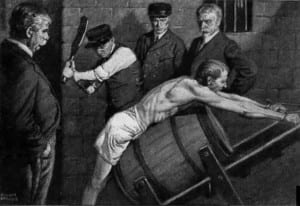New study finds taking deep breaths doesn’t work; sufferers pairing biofeedback with shallow breaths increased carbon dioxide and improved long-term lung health
Asthma patients taught to habitually resist the urge to take deep breaths when experiencing symptoms were rewarded with fewer symptoms and healthier lung function, according to a new study from Southern Methodist University, Dallas.
The findings are from a large clinical trial funded with a grant from the National Institutes of Health’s National Heart, Lung, and Blood Institute.
The results suggest asthma patients using behavioral therapy in conjunction with their daily asthma medicine can improve their lung health over the long-term, said principal investigators Thomas Ritz and Alicia E. Meuret, both SMU clinical psychologists.
Also, sufferers may potentially reduce their dependence on emergency medication, such as rescue inhalers, the researchers said.

Asthma can be a life-threatening disease if not managed properly, according to the American Lung Association. Nearly 26 million Americans have asthma, says ALA.
One of the most common chronic disorders in childhood, asthma is the third leading cause of hospitalization among children under 15, ALA says.
Asthma attacks typically provoke sufferers to gulp air and take deep breaths to relieve the frightening fear of asphyxiation, said Ritz and Meuret. In addition, asthma sufferers tend to breathe too much even when not experiencing symptoms.







But Ritz, Meuret and their co-authors found with their research that deep breathing is exactly the wrong thing to do.
For their study, one group of asthma patients used biofeedback to monitor their breathing for reassurance they were getting sufficient oxygen. The patients practiced shallower, shorter breaths to increase their intake of carbon dioxide, CO2. A second group also practiced slower breathing, but without biofeedback.
“This study goes to the heart of hyperventilation — which is deep, rapid breathing that causes a drop in CO2 gas in the blood. That makes a person feel dizzy and short of breath,” Ritz said. “Patients in our study increased CO2 and reduced their symptoms. And over a six-month period we saw in the biofeedback group an actual improvement in the physiology of their lungs.”
The researchers reported their findings in the pulmonology medical journal Chest, “Controlling asthma by training of capnometry-assisted hypoventilation vs. slow breathing.” Ritz is a professor and Mueret an associate professor in the Department of Psychology in SMU’s Dedman College.
Shallow breathing method is counterintuitive
“When people hyperventilate, there is something very strange happening,” Meuret said. “In essence they are taking in too much air. But the sensation that they get is shortness of breath, choking, air hunger, as if they’re not getting enough air. It’s almost like a biological system error.”
Onlookers commonly give the advice, “Take a deep breath.” But that’s just the opposite of what a struggling breather should do.
“They don’t need any more oxygen,” Meuret said. “But consciously or not, people start to take deeper breaths — and that makes the symptoms worse.”
Among the study’s 120 patients who used the brief, four-week biofeedback therapy to boost their CO2, the researchers found that of 21 clinical indices of pathology more than 80 percent resulted in significant reductions. The researchers saw improvement in asthma symptoms and control, better lung function, reduced oversensitivity of the airways and less use of reliever medication, as well as improvement in physiology and the pathology of the airways.
Biofeedback method tested against tough scientific control group
The biological-behavioral treatment method, called Capnometry-Assisted Breathing Training, or CART for short, was developed by Meuret. Previous randomized controlled studies by Meuret found CART reduced symptoms of panic and hyperventilation in patients with panic and anxiety.
The handheld capnometer, equipped with a digital readout, enables patients via biofeedback to track changes in their CO2 when they alter their breathing during breathing training exercises and instruction sessions. Capnometers are medical devices that can only be purchased by a health care provider.
For the current SMU study, CART patients were compared to a randomized control group that also received a breathing treatment — specifically, slower breathing, or SLOW for short.
Patients in the SLOW group used the CART device also for their home exercises to validate they were breathing slower. The only difference between the CART and SLOW groups was that CART patients received biofeedback about their CO2.
“We tested CART against the toughest scientific control we could devise — another breathing treatment, where patients receive the same amount of attention from their therapist, use equipment to help them alter their breathing, are primed to pay attention to their own asthma management, and receive encouragement to take their medicine more regularly,” Ritz said.
CART and SLOW patients both improved, but CART benefits were long-lasting
Patients in the study were from the Dallas-Fort Worth area, all of them medically diagnosed with asthma. Each patient’s asthma diagnosis was independently validated at Baylor University Medical Center at Dallas by a methacholine airways stress test, a stringent diagnostic procedure to confirm patients met the criteria for asthma.
After four weeks of CART and SLOW training, asthma symptoms for both groups had improved, even when controlling for any change in medication intake.
However at follow up six months later, asthma symptoms for the SLOW control group had returned to higher levels.
“The follow-up period is often viewed as the moment of truth of how effective a treatment is,” said Meuret. “Once a patient doesn’t have to come to treatment, does the treatment continue to be beneficial? After four weeks, both treatments were beneficial, but CART was superior — and showed even greater improvements beyond that.”
CART patients also became less distressed about the methacholine test, indicating higher distress tolerance to their symptoms, Ritz said.
In addition, during treatment, the airways of CART patients widened during treatment in the lab, according to measurements taken by a forced oscillation technique. That was a positive development that allowed patients to breathe easier. Airways in the SLOW group actually narrowed a bit, said Ritz. Nevertheless, SLOW resulted in significant improvement also.
“The long-term goal of the CART research is to test whether we can achieve the same improvements with occasional intervals of capnometer feedback training, or ideally test whether shallow breathing in itself will achieve the same stable increases in CO2,” said the researchers.
CART not a relaxation technique
CART is not relaxation training. Quite the opposite.
“It’s actually very, very, very unrelaxing when patients start,” Meuret said.
For patients with low CO2 in particular, the process of breathing slow and shallow to increase the CO2 level — even just slightly — tends to trigger extreme air hunger.
“Only by reassuring themselves that the symptoms are caused by low CO2 and not low oxygen, they can keep on going,” Meuret said. “And that’s even more difficult for asthmatics than anxious patients who have a normal lung function.”
Patients initially want to take a deep breath, she said. “But I reassure them not to, telling them to ‘Look at the CART device, look at their oxygen, it’s at 100 percent, it can’t get any higher.’”
CART therapy can improve quality of life, reduce health dangers
“The goal is to reduce the need of the emergency medication,” Ritz said. “It’s a quality of life issue.”
Patients with asthma symptoms miss out on sports, limit their physical activity, or are kept out of school P.E. and other activities. They can also become depressed and anxious, and get over-sensitive to sensations.
“The more you can reduce these symptoms the more the person can take part in daily life like a normal person,” Ritz said.
Physiologically, symptoms are also an indicator the asthma patient may have more inflammation and constriction.
While there’s always the risk an attack may be fatal, Ritz said, lesser outcomes are serious also. It’s recommended to intervene in asthma early, ideally during childhood, because the airways become reshaped.
“The longer they’re inflamed, the thicker the tissue of the airways get and the narrower the airways and the less they can relax,” he said.
Other co-authors on the study were SMU psychologist David Rosenfield, graduate student Ashton M. Steele, and physician Mark W. Millard, Baylor University Medical Center Dallas. — Margaret Allen
Follow SMUResearch.com on twitter at @smuresearch.
SMU is a nationally ranked private university in Dallas founded 100 years ago. Today, SMU enrolls nearly 11,000 students who benefit from the academic opportunities and international reach of seven degree-granting schools. For more information see www.smu.edu.
SMU has an uplink facility located on campus for live TV, radio, or online interviews. To speak with an SMU expert or book an SMU guest in the studio, call SMU News & Communications at 214-768-7650.



 Department of Defense awards $2.6 million to SMU STEM program for minority students
Department of Defense awards $2.6 million to SMU STEM program for minority students Low IQ students learn to read at 1st-grade level after persistent, intensive instruction
Low IQ students learn to read at 1st-grade level after persistent, intensive instruction Richest marine reptile fossil bed along Africa’s South Atlantic coast is dated at 71.5 mya
Richest marine reptile fossil bed along Africa’s South Atlantic coast is dated at 71.5 mya Satellite view of volcanoes finds the link between ground deformation and eruption
Satellite view of volcanoes finds the link between ground deformation and eruption Comet theory false; doesn’t explain cold snap at the end of the Ice Age, Clovis changes or mass animal extinction
Comet theory false; doesn’t explain cold snap at the end of the Ice Age, Clovis changes or mass animal extinction Real-time audio of corporal punishment shows kids misbehave within 10 minutes of spanking
Real-time audio of corporal punishment shows kids misbehave within 10 minutes of spanking



